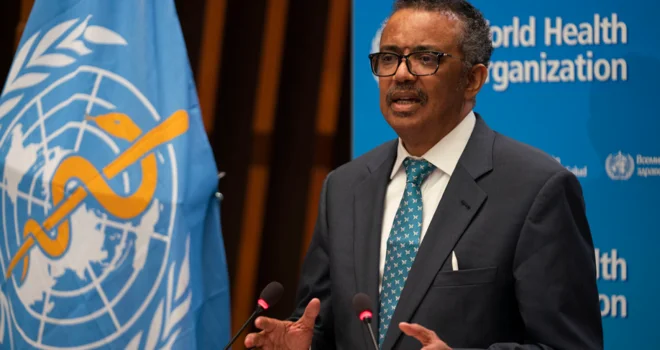Agenda Item 22 – Climate Change and Health
Constituency Statement
This statement is made by the World Heart Federation on behalf of the Global Alliance for Tobacco Control, HelpAge International, International Alliance of Patients’ Organizations, International Diabetes Federation, International Society of Nephrology, NCD Alliance, Union for International Cancer Control, World Cancer Research Fund International, and World Stroke Organization.
Honourable Chair, Distinguished Delegates,
We applaud Member States for addressing impacts of climate change on health through the 2024 Resolution and welcome a comprehensive Global Plan of Action.
Climate change has a wide range of impacts on health and well-being. NCDs including CVD, kidney disease, diabetes, and stroke are particularly implicated, from direct exposure pathways such as heat events and air pollution to indirect knock-on effects like extreme weather leading to disruptions in food and health systems. Climate change disproportionately affects susceptible populations, including vulnerable groups such as the very young and very old, and people living with cardiopulmonary diseases. In 2021, roughly 8 million deaths were attributable to air pollution, with as many as half from heart disease and stroke.
We warmly welcome a strong Global Plan of Action on Climate Change and Health. As the document takes shape, we celebrate its call for inter- and multi-sectoral cooperation between health ministries and relevant national authorities on climate change; its focus on health co-benefit assessment for mitigation and adaptation across sectors; the recommendations to strengthen evidence underpinning health and climate policy; establishment of a mechanism to mainstream climate and health action across the WHO; commitment to work more closely with the UN and other international partners to foster the integration of health policies into climate change processes; and recognition of the need for health ministries to develop and implement climate mitigation and adaptation policies and programmes.
However, we note with concern some critical gaps in the proposed plan, and present the following recommendations:
● Refining the scope of the proposed actions to support implementation, including progress indicators;
● Greater emphasis on costings of climate and health action, making the case for investment and communicating ROI;
● Strengthening guidance on risk forecasting;
● Recommending interventions to reduce the use of fossil fuels as common drivers of climate change and air pollution;
● Including measure to build more resilient health systems;
● Engaging civil society in the development, implementation and evaluation of national climate and health strategies;
● A monitoring mechanism to track progress; and
● Developing guidance on which stakeholders should be engaged, including safeguards from commercial and other vested interests.
We stand ready to participate in future consultations and to support both Member States and the WHO as you craft and implement a comprehensive plan to combat climate change and its effects on human health. We thank you.
Supporting organizations: Global Alliance for Tobacco Control, HelpAge International, International Alliance of Patients’ Organizations, International Diabetes Federation, International Society of Nephrology, NCD Alliance, Union for International Cancer Control, World Cancer Research Fund International, World Heart Federation, and World Stroke Organization


